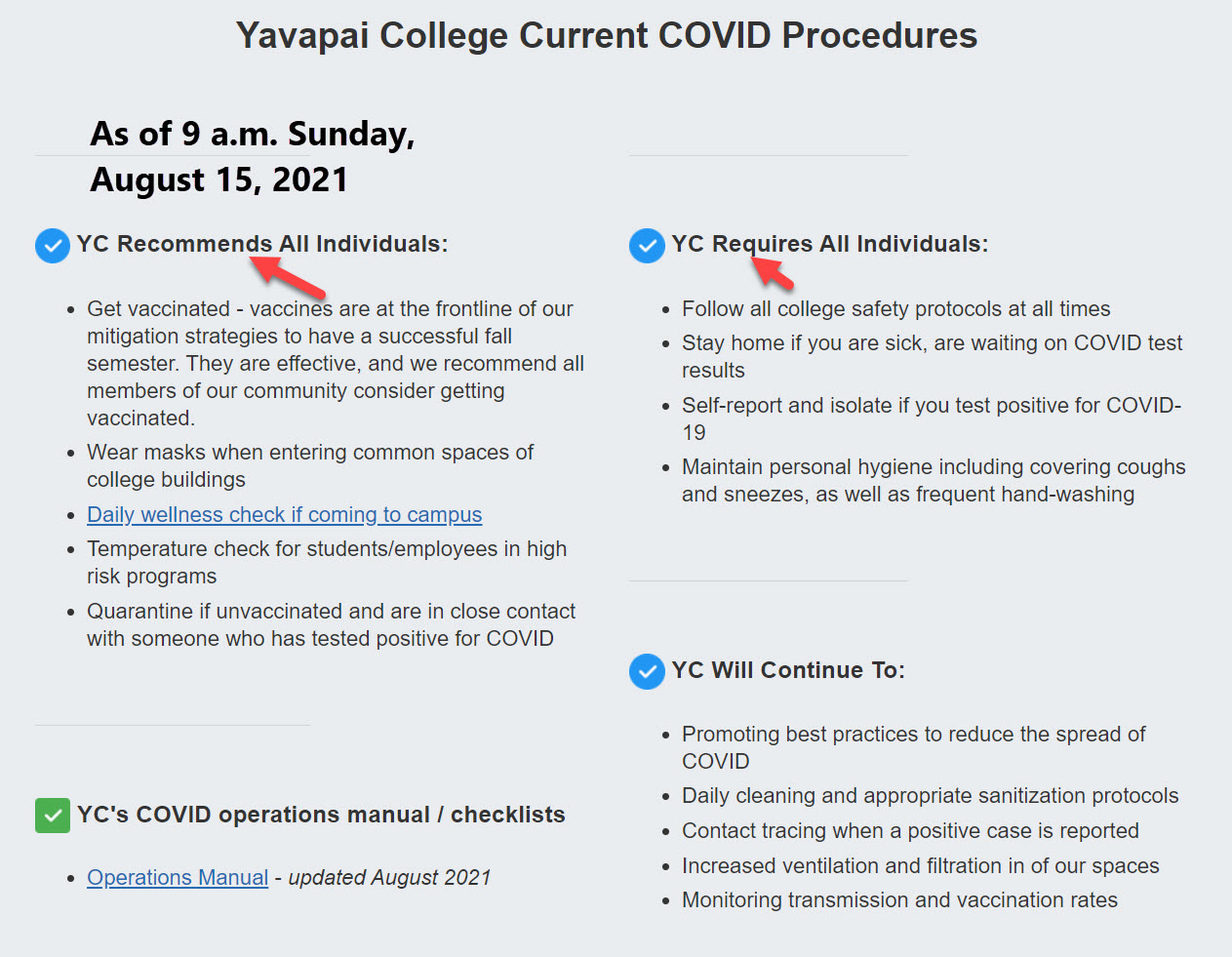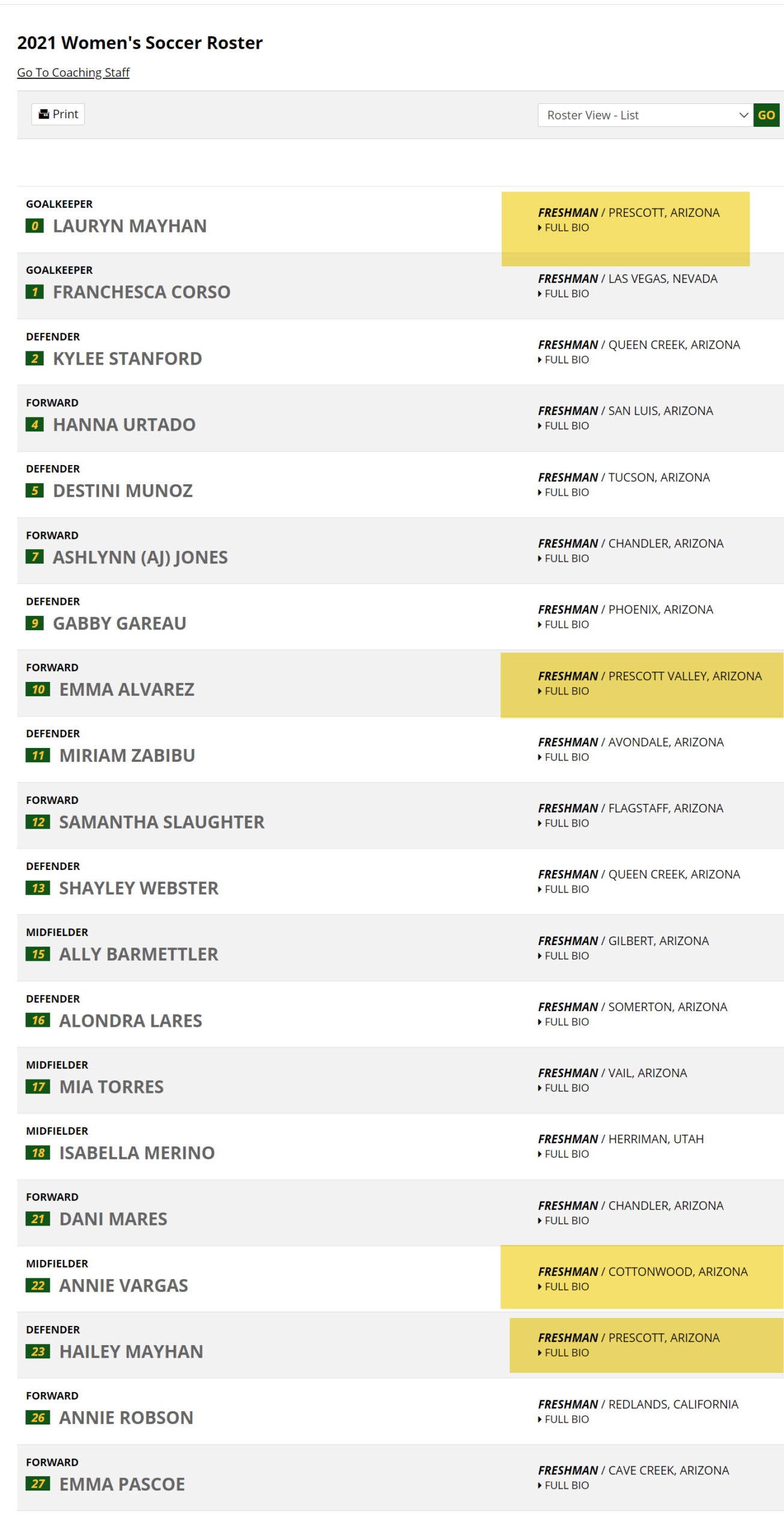Fun Run, Dancing with the Stars, and Golf Classic all scheduled; Foundation creates a new Annual Fund to support athletic scholarships
Yavapai Community College has announced a series of fund raising events beginning with the Roughrider Athletics Classic Golf Classic on September 24. It will be followed by the “Fun Run” on September 26 and the “Dancing for the Stars” fundraiser on October 2. It also announced it has established a new Annual Fund to support its athletic department.
The athletic programs, all of which emanate from the Prescott Campus, annually spend an estimated $1.7 million in coaching salaries and related expenses. In addition, they provide athletes with about $650,000 in scholarship assistance from the College’s General Fund. Most of the athletes are recruited from outside Yavapai County and a several come from outside Arizona.
At the April 2020 Governing Board meeting, the issue of scholarships and out-county recruitment was raised by Third District Representative Paul Chevalier. In response to his questions, it was learned that the College is taking major steps to change how it handles athletic scholarships and recruiting. This included seeking to raise funds to support the scholarship program.
At the October 2020 Governing Board meeting, the Community College announced a five-year plan in the works to use the Foundation to support all athletic scholarships and a plan to lower out-state tuition for athletes that will allow a wider national recruiting by coaches.

 Yavapai Community College has announced a new three-year pilot program for students in the Nursing, Nursing intent, Early Childhood and K-12 Education whose childcare costs may have prevented them from attending college. The Community College in cooperation with the Arizona Department of Economic Security will pay up to $725 per child, per month, in childcare expenses for qualified full-time students in these four areas of study.
Yavapai Community College has announced a new three-year pilot program for students in the Nursing, Nursing intent, Early Childhood and K-12 Education whose childcare costs may have prevented them from attending college. The Community College in cooperation with the Arizona Department of Economic Security will pay up to $725 per child, per month, in childcare expenses for qualified full-time students in these four areas of study. The three public universities in Arizona and its largest community colleges have indicated how they will enforce the mask mandates they have imposed to protect the education community from the rapid spread of Covid-19. Failure to comply is considered a violation of the student code of conduct.
The three public universities in Arizona and its largest community colleges have indicated how they will enforce the mask mandates they have imposed to protect the education community from the rapid spread of Covid-19. Failure to comply is considered a violation of the student code of conduct. Pima County Community College in Tucson had joined the University of Arizona, Arizona State, Northern Arizona and the ten Maricopa Community Colleges in requiring face coverings indoors when social distancing is not possible.
Pima County Community College in Tucson had joined the University of Arizona, Arizona State, Northern Arizona and the ten Maricopa Community Colleges in requiring face coverings indoors when social distancing is not possible. Yavapai Community College has fallen behind Arizona’s Universities and its largest Community College in Covid-19 safety protocols by not mandating the wearing of masks in classrooms, offices, and other indoor gathering facilities when classes begin August 16.
Yavapai Community College has fallen behind Arizona’s Universities and its largest Community College in Covid-19 safety protocols by not mandating the wearing of masks in classrooms, offices, and other indoor gathering facilities when classes begin August 16. 


 The United States Supreme Court refused Thursday to block Indiana University’s requirement that students be vaccinated against Covid-19 before being allowed to attend classes in the fall semester. Justice Amy Coney Barrett denied a request from eight students at Indiana University who had claimed the University of Indiana should be barred from mandating that they be vaccinated because the risks associated with the vaccines outweighed the potential benefits for the population in their age group.
The United States Supreme Court refused Thursday to block Indiana University’s requirement that students be vaccinated against Covid-19 before being allowed to attend classes in the fall semester. Justice Amy Coney Barrett denied a request from eight students at Indiana University who had claimed the University of Indiana should be barred from mandating that they be vaccinated because the risks associated with the vaccines outweighed the potential benefits for the population in their age group. everyone at ASU. “Unlike the legislation applicable to K-12 districts, neither the governor’s order nor the legislation applicable to the universities prohibits a mask mandate,” said ASU spokesperson Jay Thorne. “Instead, it prohibits the universities from either requiring vaccinations or imposing different requirements on students to attend classes (such as masking or testing) based on the student’s vaccination status or willingness to disclose that status.”
everyone at ASU. “Unlike the legislation applicable to K-12 districts, neither the governor’s order nor the legislation applicable to the universities prohibits a mask mandate,” said ASU spokesperson Jay Thorne. “Instead, it prohibits the universities from either requiring vaccinations or imposing different requirements on students to attend classes (such as masking or testing) based on the student’s vaccination status or willingness to disclose that status.” Yavapai Community College’s Women’s Soccer Team roster for 2021 has been announced. This will be the first season for this soccer team.
Yavapai Community College’s Women’s Soccer Team roster for 2021 has been announced. This will be the first season for this soccer team.